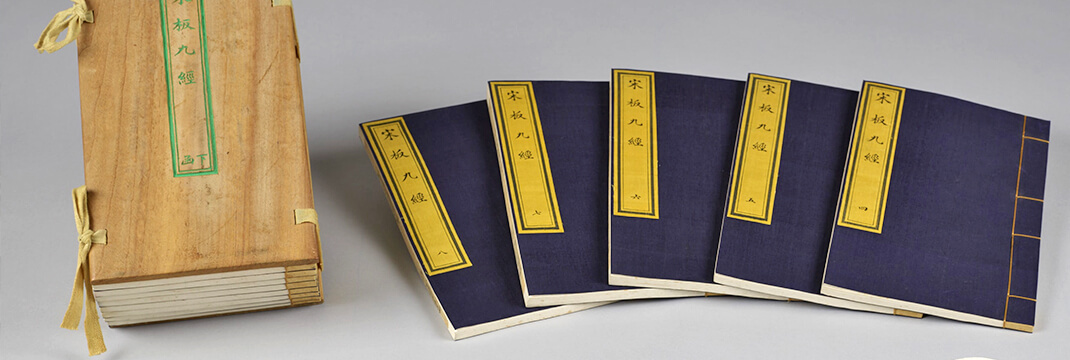
The theory of sacrifice presupposes the interpretation of reality through the prism of some exchange because people mostly make sacrifices in order to get something needed. Thus, sacrifices are usually connected with particular mythology or religion, and they are often made to influence some supernatural being that would provide the sacrifice-maker with some advantages or realize his or her wish. For example, a ‘do ut des’ theory described in the Five Classics is based on such a point of view. Besides, the same conception may exist in the social dimension as a moral law. Thus, the Golden Rule of Confucius also operates on the belief in some general exchange of actions that influences people and their lives and makes everyone receive something as a result of his or her deeds. Therefore, both ‘do ut des’ theory and the Confucian Golden Rule are based on the same belief in the close interrelation of deeds of all rational beings, but ‘do ut des’ operates on the mythological view of the world, while the Golden Rule is a philosophical doctrine of proper behavior in society.
The main idea of the ‘do ut des’ concept is based on the law of exchange between this world and its supernatural counterpart. One of the most important issues of the Five Classics was the proper way to organize society (Nylan 136). The ancient Chinese thinkers considered that all of their deeds once would be rewarded, and that was the reason why they tried to make good deeds or give some sort of sacrificial ‘bribes’ to the rewarding supernatural forces. Those were ghosts and spirits, and it is very important that Mozi, an ancient Chinese philosopher, considered the lack of people’s belief in those supernatural beings to be the root of the general decrease in well-being (Ivanhoe and Van Norden 95). Mozi compared the sages who could reward one’s deeds with ghosts and spirits who could do the same, and concluded that the latter were immensely higher in rank than the sages (Johnston 641). According to Mozi, when ghost and spirits “see good, they will not dare to not reward it and when they see wickedness, they will not dare to withhold punishment” (Ivanhoe and Van Norden 104). This is the theoretical basis of the principle of ‘do ut des’ because through the glorification of ghosts and spirits, as well as their duty to reward and punish people, the law of exchange presupposes the institution of sacrifices that should ensure that the supernatural world provide people with some benefits.
The Golden Rule of Confucius is explained in his analects where he claims that “reciprocity” is a “single word that could guide one’s entire life”, and adds: “what you do not wish for yourself, do not do to others” (47). In this context, it is important to underline that one of the main virtues of a Confucian gentleman is benevolence. Mark Csikszentmihalyi in his biography of Confucis underlines that a benevolent person for Confucius is one who “cares for others in the way one would want to be cared for oneself, with a realization that their personhood is of the same kind as one’s own” (260). Therefore, it is clear that benevolence directly corresponds to the Golden Rule, and presupposes its practical expression in social dimension. Thus, the Confucian Golden Rule is based on the law of exchange and suggests that every deed of a person that influences another member of society will bring either inevitable reward or punishment.
Invite your friends and get bonus from each order they
have made!
Through the mentioned characteristics of both concepts, it is clear that they share the belief in the reciprocity as the law that sets the tenets of all possible relationships in the world. Thus, every deed in Confucian model of the world presupposes some response of the Universe, which may punish or reward a person depending on the specifics of their action. Just as the Golden Rule, the principle of ‘do ut des’ also presupposes the inevitable response of ghosts and spirits to any action of people. Therefore, according to both conceptions, people should avoid wickedness and tend to do good in order to get some advantages during their lives.
The differences between the Confucian Golden Rule and the principle of ‘do ut des’ concern the interpretations of the reality on which both conceptions are based. The mythological concept of ‘do ut des’ appeals to some supernatural ghosts and spirits whose very existence is rather doubtful, as Mozi claims (Ivanhoe and Van Norden 95). Thus, through the personal relationships with these beings, people may oblige them to offer some benefits in response to peoples’ sacrifices – this belief in the indispensable specifics of the universal exchange is the main theoretical tenet of the concept of ‘do ut des’. This teaching is so focused on supernatural world that Mozi even underlines the superiority of ghosts and spirits in comparison to ordinary sages (Johnston 641). In contrast, Confucianism pays particular attention to the social side of life, neglecting any supernatural dimension of the reality. The rewards and punishments for peoples’ deeds are not based on any personal relationships, but are granted by an abstract universal law that regulates the equality in the world. In other words, the Confucian version of the world’s understanding through the prism of reciprocity has philosophical features.

Top Writer Your order will be assigned to the most experienced writer in the relevant discipline. The highly demanded expert, one of our top 10 writers with the highest rate among the customers.
Hire a top writer for $4.40Thus, through the analysis provided, the relation between the fundamental principles of ‘do ut des’ and the Golden Rule of Confucius becomes clear. The concept of ‘do ut des’ is based on the mythological interpretation of the reality. According to it, there are some supernatural beings that can reward those people who make sacrifice because every deed inevitably presupposes some adequate response. In its turn, the Golden Rule suggests that all relationships between people are regulated by some supreme law that makes people answer for all their previous deeds. The Confucian teaching concerns society; it disregards any ghosts or spirits, unlike a ‘do ut des’ theory, which focuses on the supernatural, and that is the main difference between them. Besides, both mythological principle of ‘do ut des’ and philosophical conception of Confucius are based on the same belief in inevitable exchange, and that is their main common feature.



